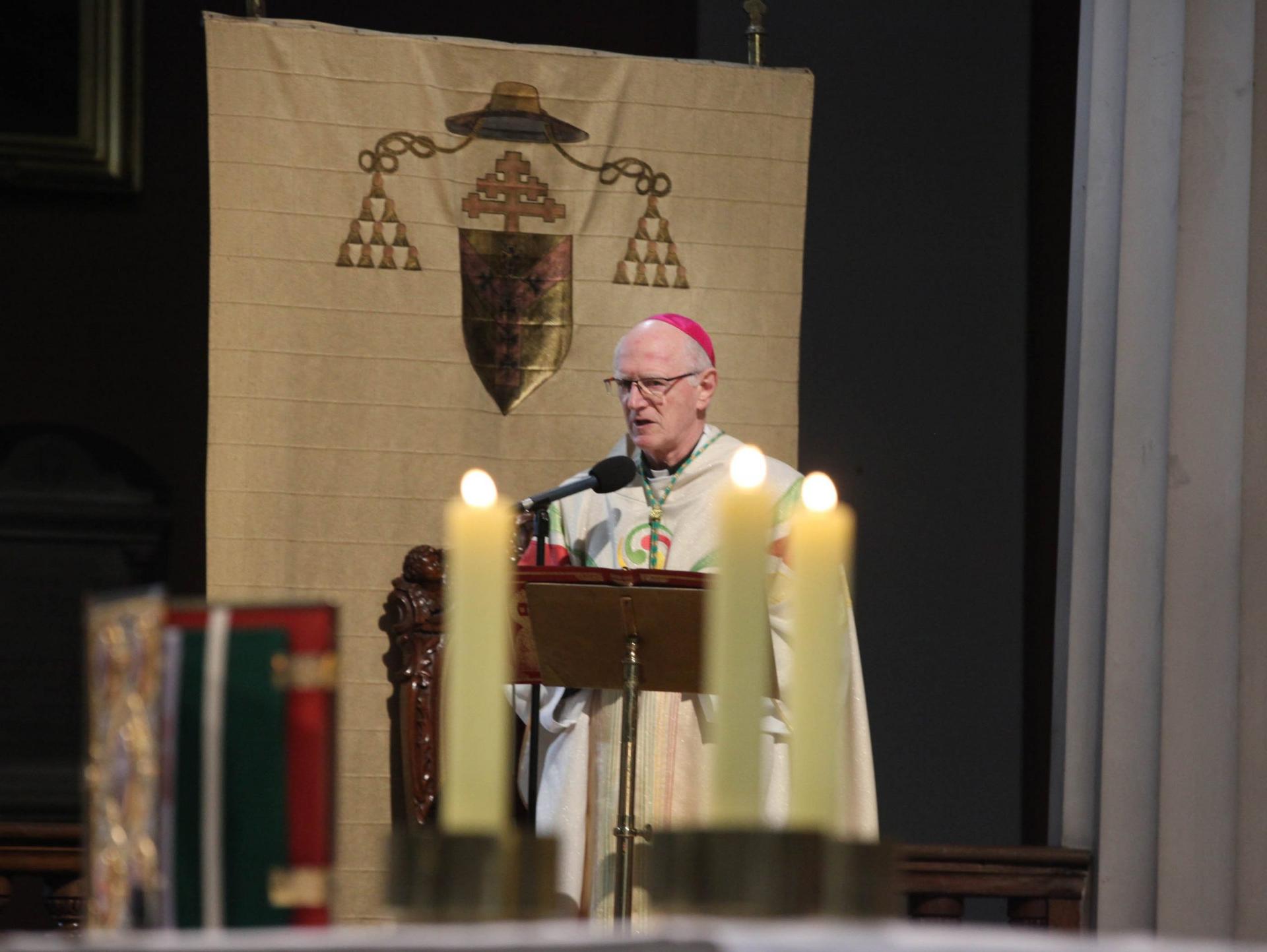LEICESTER, United Kingdom – Dublin’s archbishop has called a proposal that religious education could be “separated out” of Ireland’s schools a “backward step.”
Archbishop Dermot Farrell was speaking on May 13 at the Catholic Primary Schools Management Association. Nearly 88 percent of primary schools in the Republic of Ireland are affiliated with the Catholic Church but are state-funded.
As Ireland becomes more secular, the Draft Primary Curriculum Framework has suggested that religious instruction could be separated out of the rest of lessons in schools, or even left out entirely.
“The place of Religious Education in Catholic schools is central, and the curriculum should facilitate it generously and with ease, not simply as a possible add-on,” Farrell said.
“In all schools Religious Education, in one form or another, has a contribution to make to the holistic development of young people. In the plural reality of society today we need to build up respect for others rather than diminish it by mistakenly downplaying significant questions – such as the fundamental importance of Religious Education in schools provided in ways that are wholesome and open to difference,” the archbishop continued.
He said the Catholic school “adds value,” helping young people to appreciate the spiritual, the religious, the moral, as well as the intellectual, creative, physical and social aspects of life.
“The Catholic school speaks from its deepest values to all, opening its doors not only to young Catholics, but to those of other denominations, other religions and other worldviews, in a hospitable, respectful, inclusive manner – inviting them to participate in appropriate ways in what it offers them,” Farrell said.
The archbishop also defended the Flourish resources on human sexuality developed by the Catholic Church for use in government-mandated Relationship and Sexuality Education (RSE) courses in Catholic schools.
Flourish has come under fire from many in Ireland – which has in the past decade has legalized same-sex marriage and abortion – for its promotion of traditional Catholic sexual morality in state-funded schools.
Non-Catholics note that they often have no choice but to send their children to Catholic schools, and the program is “indoctrination.”
“Why on earth would non-religious parents want their children taught moral and social values based on the supposed teachings of a god? There is no balancing of rights here, but the tightening of control to ensure that the Catholic Church can continue to evangelize and indoctrinate,” Atheist Ireland said in a statement.
Farrell said that “respect for all people, for human life at all its stages, and for the deepest understanding of sacredness of human life,” is a fundamental teaching of the Catholic Church, and welcomed Flourish as “being respectful of our Catholic ethos.”
“Catholic schools seek to create reflective learning spaces where all of life is dealt with in an appropriate, integrated, life-enhancing manner, and where the spiritual is given its rightful essential role in the establishment and maintaining of wellbeing,” the archbishop said.
He also noted that even if sacramental marriage between a man and woman in Church is not for everyone, “our faith asks that we put before our young people and their families, such an understanding of marriage as part of their formation for life, and in the faith.”
“Flourish affirms the core of the Judeo-Christian tradition: Every human being is made in the image and likeness of God and is loved by God as they are. The resource material clearly states that any young person grappling with questions around their own gender identity or sexual orientation is be treated with the utmost care and respect,” he said.
Speaking in the Dail – the Irish parliament – on Wednesday, Irish education minister Norma Foley was questioned about the Flourish resources, and said schools are required to teach all aspects of the RSE program, including family planning, sexually transmitted infections and sexual orientation.
“It is important to note that the ethos of the school should never preclude learners from acquiring the knowledge about the issues, but ethos may influence how that content is treated,” she said.
However, she said the government “will make appropriate legislative changes, if necessary,” to ensure that RSE education is “inclusive.”
Follow Charles Collins on Twitter: @CharlesinRome














